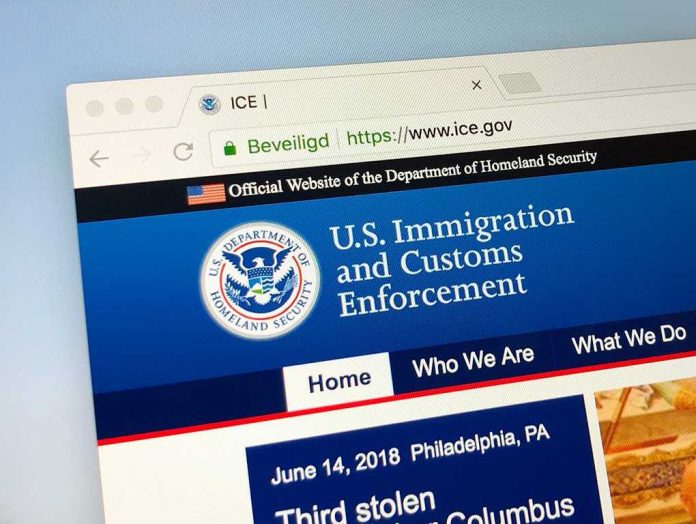
When a decorated Army veteran is wounded protesting ICE in his own hometown and then charged with conspiracy, the very definition of patriotism and protest in America cracks wide open—who gets to dissent, and at what cost?
Story Snapshot
- A former U.S. Army sergeant, injured in Afghanistan, is charged after protesting an ICE deportation in Spokane, Washington.
- The federal use of conspiracy charges against a veteran has ignited national debate about criminalizing protest and dissent.
- Lawmakers and civil rights groups argue that ICE’s actions risk chilling constitutionally protected protest, especially by veterans.
- The case is a litmus test for the Trump administration’s approach to protest, federal enforcement, and the treatment of veterans.
When Service Meets Dissent: A Veteran’s Protest Turns Violent and Legal
Bajun “Baji” Mavalwalla II survived a roadside bomb in Afghanistan, only to be shot with a rubber bullet by federal agents in Spokane. On June 11, 2025, Mavalwalla saw a social media call to action from Spokane’s former City Council president. Within hours, he joined hundreds rallying downtown after a legal asylum seeker was detained by ICE. The protest swelled, voices clashed with law enforcement, and more than two dozen were arrested that day. Mavalwalla escaped immediate detention, but the cameras didn’t miss him.
Days later, footage surfaced showing Mavalwalla at the protest’s front lines. Federal agents arrived at his home, arresting him as his father—a fellow Army vet—filmed the event. Prosecutors charged Mavalwalla with conspiracy to impede or injure officers, a move legal experts call a test case for criminalizing protest. What began as a local rally now spotlights the collision between immigration enforcement, protest rights, and the veneration of military service.
The Federal Hammer: Conspiracy Charges and the High Cost of Dissent
ICE and federal prosecutors wield broad authority, and under the Trump administration, that power has been exercised with sharp intent. Charging a combat veteran with conspiracy for protest activity is rare, and the stakes are high. Mavalwalla faces up to six years in prison if convicted. Legal scholars note that veterans prosecuted for protest have historically been outliers, yet The Guardian has documented at least eight similar cases in recent years. The severity and conspicuousness of Mavalwalla’s charges have made his case a national litmus test.
"Lawmakers slam Ice after US military veterans are arrested, injured" – The Guardian #SmartNews https://t.co/60wA3RDSdA
— Nazim Abdul-Latif (@goldeinmind) October 21, 2025
Civil rights advocates see something bigger at play—an effort to chill dissent, especially among public figures like veterans, whose sacrifices are woven into America’s self-image. Federal agencies, meanwhile, argue that law and order require robust enforcement, regardless of biography. The lines are drawn: between federal power and civil liberties, between protest as patriotic duty and as criminal offense.
Veterans, ICE, and the Politics of Protest: A Battle for Public Sympathy
Mavalwalla’s story resonates because it upends expectations. Veterans are often shielded from public scorn; their participation in protest draws attention and, frequently, empathy. The image of a Purple Heart recipient wounded on American soil by federal agents is not easily dismissed. Lawmakers from both parties have condemned the escalation, with some calling the prosecution “unconscionable” and a direct affront to the freedoms veterans are sworn to protect.
Social media has amplified every moment. Footage of the protest, the arrest, and interviews with Mavalwalla’s father circulate on national news and advocacy feeds. Civil rights organizations have rallied behind the family, arguing that the use of conspiracy charges against a protester—let alone a veteran—could become precedent for silencing dissent nationwide. The public outcry echoes a larger mistrust of federal immigration enforcement and a growing debate over what constitutes “acceptable” protest in America.
The Road Ahead: Legal Precedent, Political Fallout, and the Meaning of Service
Mavalwalla awaits trial. His case is watched closely by activists, veterans’ groups, lawmakers, and the legal community. If the prosecution succeeds, it may embolden federal agencies to pursue similar charges against protesters, raising the specter of a legal system increasingly intolerant of dissent. In the short term, the controversy has galvanized advocacy for veterans’ rights and scrutiny of ICE tactics. In the long term, the outcome could shape the boundaries of protest and the government’s power to punish those who dissent—even those who have risked their lives in its service.
The most unsettling question lingers: Is there any American more entitled to protest than one who’s fought for the country’s freedoms? The answer, for now, remains contested—in the courts, in Congress, and on streets across the nation.



